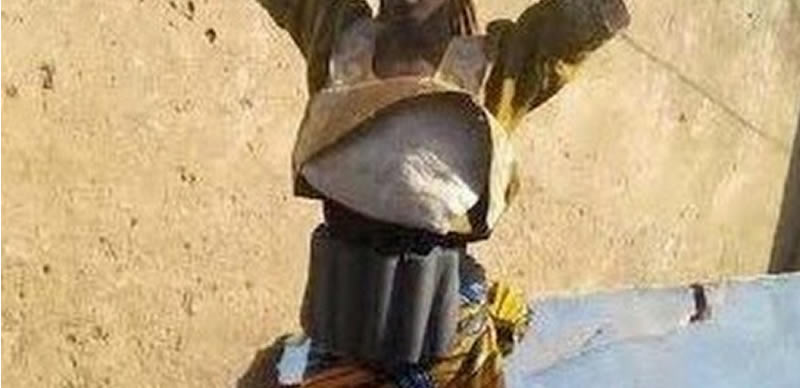The resurgence of violence in Northern Nigeria has sparked widespread fear and anxiety. Banditry and terrorism, marked by indiscriminate attacks and bombings, have disrupted communities across several states, including Borno, Katsina, Benue, Plateau, Yobe, Sokoto, and Zamfara. The brief respite from violence has been shattered by renewed assaults on soft targets, leaving residents living under constant threat.
In Borno State, the police have discovered and defused multiple improvised explosive devices (IEDs) planted near an Internally Displaced Persons (IDP) camp and on a farm. These incidents, occurring within a short timeframe, underscore the heightened security concerns in the region. In Katsina State, bandits attacked a mosque during morning prayers, killing at least 34 worshippers in a suspected reprisal attack. Simultaneously, suspected herders killed four people in Benue State, and 15 farmers were murdered in Plateau State, highlighting the widespread nature of the violence. The Chief of Defence Staff linked these escalating attacks to the upcoming 2027 general elections, suggesting political motivations behind the violence.
Residents of these affected communities express deep-seated fear and uncertainty about their safety. In Yobe State, citizens have restricted their movements and social interactions, impacting their livelihoods. The proximity to Borno State and a history of insurgency contribute to the pervasive anxiety. Markets, social gatherings, political events, IDP camps, and health facilities are identified as potential targets, emphasizing the vulnerability of the population. Urban farmers are particularly affected, as they fear venturing into rural areas for their agricultural activities. The Damaturu-Buni Yadi-Biu road has become a hotspot for attacks and kidnappings, further restricting travel and commerce.
Communities in Sokoto State’s eastern senatorial district are also grappling with persistent attacks. The recent mosque attack in Katsina has intensified fears, leading many to abandon communal prayers. Farmers are increasingly targeted on their land, making agriculture a dangerous occupation. Kidnappings on farmlands have become a recurring threat, as bandits exploit the vulnerability of farmers working in isolated locations.
Zamfara State residents share similar concerns, with many losing confidence in the ability of security agencies to protect them. Some families have been forced to flee their homes due to repeated attacks and the imposition of levies by bandits. Farmers face the grim choice of paying these illegal taxes or risking their lives and crops. The cycle of violence has disrupted agricultural activities, leading to significant losses and food insecurity.
In Katsina State, communities have pleaded for government intervention to stop the ongoing killings. A resident recounted a harrowing attack on a mosque where worshippers were trapped and massacred, highlighting the brutality of the violence. The lack of government support and security presence in the aftermath of attacks has compounded the suffering of these communities. Residents feel abandoned and vulnerable, left to cope with the trauma and devastation without assistance.
In Borno State, the recurrence of IED discoveries has raised alarms about the resurgence of terrorist activities. The police suspect that both deliberate planting by insurgents and accidental relocation by scavengers contribute to the presence of these devices. Isolated areas and routes frequently used by villagers are identified as common locations for IEDs. The police acknowledge that insurgents have adapted their tactics in response to military pressure, highlighting the evolving nature of the security challenge. The increasing frequency of IED discoveries indicates a shift in insurgent strategy, requiring a corresponding adaptation in security operations.
The police in Borno State are adjusting their strategies in response to the changing dynamics of the insurgency. They are intensifying their operations and gathering intelligence to curb terrorist activities and protect vulnerable communities. The discovery of IEDs and the increasing frequency of attacks suggest a regrouping and strengthening of insurgent forces. The police emphasize the need for continuous vigilance and community cooperation in identifying and reporting suspicious activities to counter the evolving threat. The situation in Northern Nigeria remains precarious, requiring sustained and coordinated efforts from security agencies and the government to address the root causes of the violence and restore peace and security to the affected communities.














